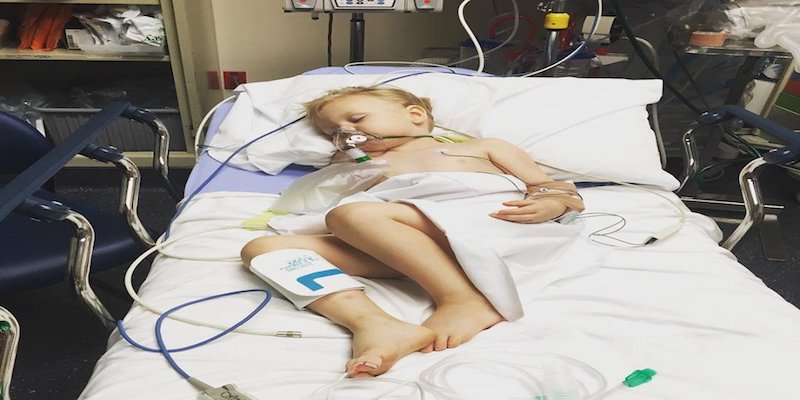- Study Says Most Parents Don’t Use Car Seats In Ride Share Vehicles Like Uber
- This 12-Year-Old Boy Is A Sophomore Aerospace Engineering Major!
- Fire Safety Experts Warn Of Hand Sanitizer Danger After A Mom and Kids Escape House Fire
- Recall Alert: Peaches May Be The Cause Of Salmonella Outbreak, 68 People Ill
- Summer Vacation In The Days Of COVID: Tips To Stay Safe
- How To Safely Grocery Shop During The Coronavirus Pandemic
- Michigan Teen With Vape-Related Illness Undergoes Double Lung Transplant
- Teen Kicks Off Anti-Vaping Campaign From Hospital Bed
- Teenager Receives Life Sentence For Strangling Sister To Death Over A Wi-Fi Password
- Toddler Falls To Death From 11th Deck of Cruise Ship
Mom Shares Story About Secondary Drowning


This picture shows Darcy McQueeny’s 3-and-a-half-year-old son. He’s laying unresponsive for over 6 hours after jumping into a pool without a life vest for less than thirty seconds. When he was pulled out of the water, he was completely conscious, though he coughed up a lot of water.
If Darcy did not follow her instinct to keep an eye on him, he may not have made it.
Secondary drowning happens when water enters the lungs. The symptoms, which include fatigue and coughing, may only appear hours later.
Darcy noticed that even though her son ate his dinner, he was still coughing and could barely keep his eyes open.
She decided to take him to the emergency room and while in the hospital, her son spiked a fever and became unresponsive.
“Everyone who we met in the PICU remarked at how incredibly lucky he is to be alive. Not only because he didn’t drown initially, but because he was at a gigantic risk for secondary drowning,” Darcy said in her post to Facebook. The nurses encouraged her to share her story, and that’s exactly what she’s doing.
“I want people to know that water safety is top priority for most parents. We know not to leave our kids unattended. We know that pools should be gated. We use the flotation devices designed for kids. What most parents don’t know is that even after taking precautions, when these accidents happen, kids are still in danger even after being pulled from the water fully conscious. When my son became unresponsive and the monitors were going crazy because he was crashing, I’ll never forget the panic of looking at his sweet face and realizing that I could lose him. Had we not been in a hospital, I very well could have. I want people to be aware that even if someone seems OK after an accident in the water, they may not be.”
Two sober adults was watching her child and also pulled him out of the water almost instantly, yet he still experienced complications.
Secondary drowning can occur from inhaling water at any time — even while in the bathtub. So it’s not only a swimming pool that parents need to take caution.
If your child is displaying any kind of respiratory symptoms up to 24 hours after an incident, don’t wait to do something about it.








0 comments